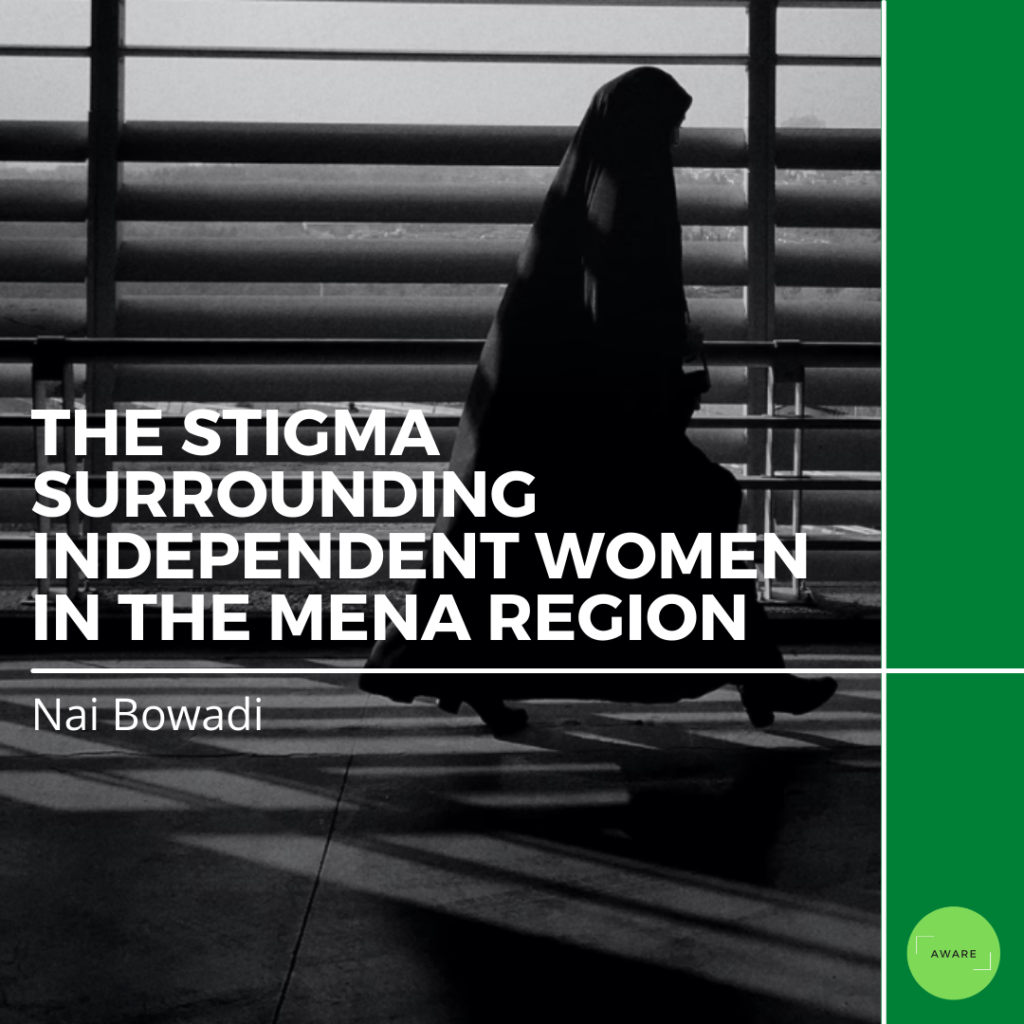Women in the Middle East and North Africa have always been hidden in the private sphere due to social and cultural customs – and even due to law in some countries. However, Arab women today are gaining new access to public life – to independence, even. Unfortunately, Middle Eastern traditions do not entirely align with the independency of women and, for that, stigma surrounding independent women living in the MENA region still exists.
Despite all the traditions and the cultural cues, a lot of countries are progressing and pushing for the independency of women and their availability in the public sphere. For example, Saudi Arabia is working on getting female labor participation to reach 30% by the year 2030. Moreover, women in Qatar and Kuwait have recently held governmental positions. Nonetheless, the stigma still has a presence as a result of religious, cultural, and patriarchal custom.
One reason behind Arab countries still wanting to domesticate women is due to the fear of westernization. Gender roles in the Middle East still play a huge role in the lives of Arabs and influential Arab conservatives emphasize the idea that the role of women in society must remain traditional – they fear a change in their lifestyle.
Reasons Why Female Independence Has a Negative Connotation
- Can be considered as disobedience
- Might interfere with traditional domestic responsibilities
- Might interfere with religious conduct
- Can be considered as a violation of Islamic values
- The detachment of male guardianship is believed to allow women to take on nontraditional and sinful paths
Because women in the Middle East play a very significant role in upholding traditional familial and cultural values, becoming independent is considered a westernized way of living. Moreover, Arab conservatives associate patriarchal gender roles with religious purity. In that sense, most Arab countries are capable of controlling women through the law – since most Arab countries follow the Sharia law or laws that one way or another follow Islam and religion. For example, “in Qatar, Kuwait, and Bahrain, a man can stop his wife from working if he feels that her employment interferes with her domestic or religious responsibilities” (Liloia, 2020).
For all those reasons, Middle Eastern women who are independent – who have dedicated themselves to their studies and have taken on career opportunities – are stigmatized. They are viewed as individuals who have too much freedom and thus can take their own decisions without the approval of the men around them. This infuriates conservative and religious clerics who have a significant social and political influence in the region. They believe that a woman must remain in the home of her father until she moves to the home of her husband, where she solely takes on the role of bearing and raising children, as well as taking care of her home and husband. For that, independent women are not seen as suitable for this domesticated role as they have careers and private lives of their own.
In conclusion, the Middle East is indeed moving forward and implementing plans to include Arab women in the public sphere. However, the effects of culture and society on such a concept cannot be neglected or overlooked. Traditions still play a huge role in the lives of Middle Eastern women, and thus the stigma surrounding independent women – who have proved that they are capable of forming lives of their own without being dependent on their male relatives or husbands – still exists.
